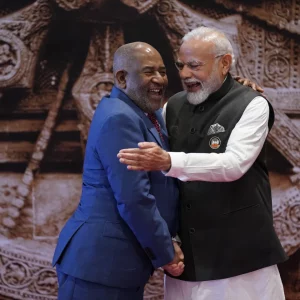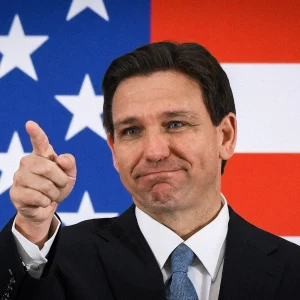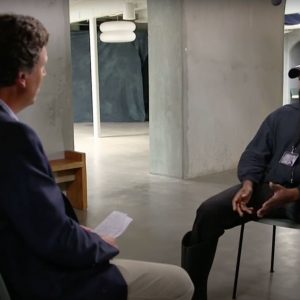
There was a recent New York article written by Vanessa Friedman discussing Michelle Obama’s fashion choices when she toured Asia to promote the “Let Girls Learn” education campaign. In the article, Friedman expresses her surprise that the First Lady chose to wear more traditionally feminine outfits such as a bright yellow patterned dress unlike the pantsuits of various shades of the rainbow we’re used to seeing on female politicians. Shouldn’t she have worn a more traditional pantsuit instead of more “girlie” numbers? Something, dare I say it, more appropriate?
Do the clothing choices of prominent female political figures matter? The answer should be no, but studies show otherwise.
A Name It Change It survey, which uses actual quotes from the 2012 media coverage of female candidates, revealed findings that one would expect. The female candidate would take a hit in the polls whenever the media focused on her appearance, even if they were positive comments on her appearance. Surprisingly however, another survey conducted in 2013 found that both men and women pay the same price when there is coverage about their appearance. Negative commentary affected both the fictional male and female candidate equally. It is important to note that even though both candidates are affected equally by coverage on their appearance, women’s clothing is talked about much more than the clothing of men.
In short, clothing choices do matter for both male and female politicians. I suppose it is the difference between someone walking into an interview dressed in ragged jeans and a stained white tee versus someone suited up in polished business attire. The individuals could have the same qualifications, but this is something we all know to be true. Packaging matters. The clothes we choose to wear creates a frame through which others see us.
Should we care about what politicians wear? My answer is an emphatic no. Let’s not forget that different clothes don’t transform a person. Clothing doesn’t change their political affiliation or their positions on free trade, the economy, foreign policy, and climate change. President Obama is still President Obama in a freshly pressed suit or in a tee-shirt and baggy sweatpants. Hillary Clinton would still be Hillary Clinton even if she decided to swap out her familiar pantsuit for a very different floral printed dress. A change in clothing doesn’t all of a sudden change any of their numerous qualifications and years of experience.
Just to be clear, I don’t really have a bone to pick with the New York Times article. Friedman didn’t say females in a male dominated political realm should wear clothing more similar to males. Rather, she was pointing out the potential political reason behind Michelle Obama’s choice of more feminine outfits. The First Lady was on a tour in Asia to promote the “Let Girls Learn” campaign. Choosing more feminine outfits said, “yes like me, you can be girlie and still achieve your rock star dreams of being a doctor or whatever it is that your heart desires.” Friedman stayed relevant by talking about the political motivations behind Michelle Obama’s dress choice. She wasn’t simply pointing out her style for no apparent reason. I would also like to add that there is nothing wrong with the pantsuit trend among female politicians either, something Friedman also mentions. Different people, different fashion choices.
Choice of clothing has nothing to do with politics (unless, for example, clothes are used as a symbolic political statement– a political figure only buys fair trade clothing because they’re against capitalist exploitation). There is pressure on female politicians to dress more like their male counterparts in pantsuits and the like in order to put their politics first instead of being questioned on where they got their shoes. But I have a very simple proposal that has certainly crossed the minds of many: the media should stop focusing on the fashion choices of both male and female politicians. In the same vein of not mixing business with pleasure, we shouldn’t mix our fashion with politics when it’s so clearly irrelevant.
Featured image source: Associated Press




